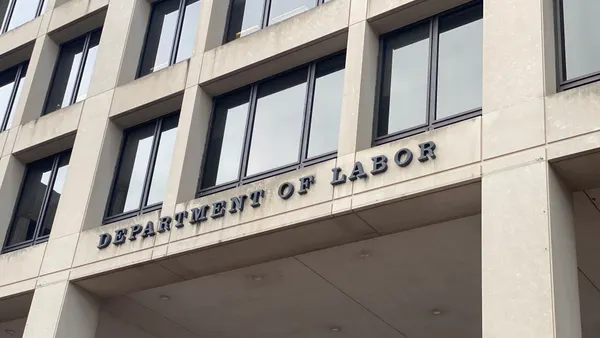Dive Brief:
- CBS News obtained documents that revealed the Trump Organization requires signed mandatory arbitration agreements from employees at its properties. The document informs all Trump employees, including housekeepers, gardeners and manicurists, that they must settle disputes through arbitration and forfeit their right to go to court or join class-action suits, according to CBS. The Trump Organization says that mandatory arbitration is a faster, cheaper and less complicated means of settling disputes than lawsuits.
- CBS notes that up to 20% of all businesses across the country require employees to forfeit their right to sue. They say that resolving claims this way saves both employers and workers money.
- Courts have recently handed employers several wins on this issue, supporting their demands that workers sign arbitration agreements, CBS notes.
Dive Insight:
Following the administration change, the U.S. Department of Justice (DOJ) in June switched its stance on mandatory arbitration and took employers' side, arguing that courts should uphold these agreements. DOJ submitted an amicus brief in the NLRB v. Murphy Oil lawsuit supporting the legality of class-action waivers in arbitration agreements. Many employers adopted arbitration agreements to curtail increased liability that comes with class-action suits.
The DOJ's about-face comes alongside several other Trump administration attempts to reverse Obama administration positions. So far, courts haven't exactly provided clarity on this. A year ago, the 9th U.S. Circuit Court of Appeals took the National Labor Relations Board's side against Ernst & Young, ruling that the company's contract clause denied employees the right to participate in class action suits. But the U.S. Supreme Court has generally supported arbitration agreements in the past.
Employers might well benefit from the DOJ's new stance, but they should review their arbitration agreements to make sure they don't cross the line into violating employees' rights, as currently defined by controlling appellate courts and any relevant laws.











